This blog was written by Dr Dawit Tibebu Tiruneh, Dr Mesele Araya, Professor Pauline Rose and Professor Ricardo Sabates Aysa, REAL Centre, Faculty of Education, University of Cambridge; and Professor Tassew Woldehanna, Addis Ababa University and Ethiopian Policy Studies Institute. It was published on the What Works Hub for Global Education blog site on 10 July 2024.
This blog highlights the impact achieved from the FCDO-funded RISE Ethiopia programme. RISE was a predecessor to the What Works Hub for Global Education, seeking to understand how national education systems could overcome the learning crisis. Through its approach of working in collaboration with the government and aid donors throughout the process and providing evidence in real time, RISE Ethiopia’s iterative approach provides important lessons for the Hub’s aims of adopting implementation science to achieve improvements in foundational learning at scale.
Over the past two decades, Ethiopia’s general education system has seen the implementation of nationwide education reforms aimed at improving student learning outcomes equitably. This blog shares highlights from our paper identifying how education policymakers in Ethiopia have engaged with evidence from these reforms to address the ongoing learning crisis. It highlights lessons learned from the partnerships between the Research on Improving Systems of Education (RISE) Ethiopia research team (led by Addis Ababa University and the University of Cambridge) and the Ministry of Education and Regional Education Bureaus in Ethiopia. The analysis is based on three qualities of partnerships, namely: bounded mutuality, sustained interactivity, and policy adaptability (Figure 1).
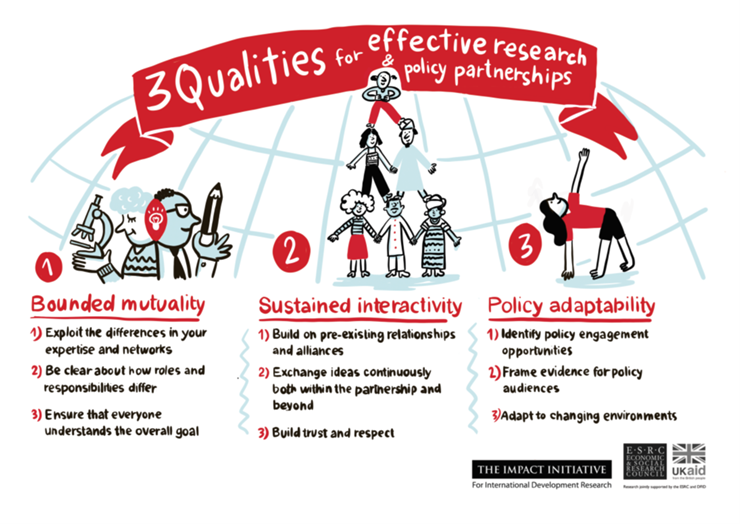
Figure 1. Three qualities for effective research and policy partnership (adapted from James Georgalakis and Pauline Rose, 2019).
- Bounded mutuality: Partnerships focused on a mutual agenda for quality education reforms
RISE Ethiopia project was instrumental in understanding the contributions of GEQIP reforms from a scientific perspective and using a scientific lens and a well-established methodology. It has helped us see how far we have achieved the desired outcomes under GEQIP-II and GEQIP-E – both the successes and challenges. (State Minister for General Education, H.E Dr. Fenta Mandefro, August 2023)
The RISE Ethiopia research team and the Ministry of Education had a mutual agenda to improve quality primary schooling and learning outcomes with equity from the outset. A Memorandum of Understanding was signed between the Ethiopian Ministry of Education and the research team before the study began. This facilitated the identification of common areas of engagement and helped maintain relationships with higher education officials throughout the project. This early engagement ensured that research questions were relevant to policymakers, and not driven by the interests of the RISE Ethiopia team. The formal Memorandum of Understanding was important as there were seven State Ministers for General Education over the seven-year period of the research. It also facilitated ongoing formal and informal dialogue.
- Sustained interactivity: Formal and informal ongoing engagement with the Ministry helped to build trust and maintain relevance of the research findings
During the [RISE] design and then validation and later dissemination workshops, what I’ve seen is positive collaboration and collegial spirit between the Ministry and the RISE team – involving the government from early on improved the possibility of taking up the results. If some researchers do the analysis [independently] and then present the results, I tend to see the Ministry being a bit resistant to that. But when they are involved from the get-go, it improves the chances of a take-up. (Economist, World Bank Ethiopia Country office, August 2023)
The RISE Ethiopia study was vital for understanding the contribution of GEQIP reforms in Ethiopia. Although several [exit] assessments were carried out by different partners on the impacts of GEQIP reforms, RISE was very comprehensive, targeting seven regions and thousands of students and their parents, and with continuous engagement with officials at the ministry and regional education bureaus. In this regard, the RISE Ethiopia project has made a huge contribution to help us understand the contribution of the GEQIP reforms in the Ethiopian primary education system. The findings are being used by the Ministry as inputs for policy development. (State Minister for General Education, H.E Dr. Fenta Mandefro, August 2023).
There were continuous deliberations between the research team and government officials from the design of the research project including framing research questions, and identifying samples and sites for the research, through to feedback on the findings from the research and identifying implications for policy and practice in Ethiopia.
Colleagues in Addis Ababa University already had strong relationships with national and regional governments, therefore the RISE Ethiopia team were able to share emerging policy-relevant research findings continuously and extensively with the Ministry and Regional Education Bureaus through formal events (such as workshops and dissemination events) along with informal engagement through ongoing conversations.
A priority of our research team was to articulate findings in a way that policymakers would find helpful, including in the form of blogs, policy notes, and working papers with key policy takeaways. Given their long engagement, the RISE Ethiopia local team could easily identify for which specific office and how to communicate emerging findings with the Ministry of Education. The engagement also included key aid donors, such as FCDO, Finland, UNICEF and the World Bank, who are largely involved in supporting the Ethiopian government in the implementation of the nationwide education reforms. Overall, the engagement ensured that insights gained from the RISE Ethiopia research informed policy and practice, particularly in bringing foundational literacy and numeracy to the forefront of policy attention, and introducing a culture of a comprehensive evaluation of large-scale education reforms.
- Policy adaptability: Strong partnerships as a key for research to provide responses to policy dilemmas
Given the ongoing engagement with the Ministry and availability of timely evidence throughout the research process, the team was able to respond quickly when policy opportunities arose. There are two key examples of evidence resulting in a policy response as a result of this approach.
- Design and development of the next round of national education reform: the Ethiopian Education Transformation Programme
Informed by the recommendations from the RISE Ethiopia study, the Ministry of Education is designing the EETP [Ethiopian Education Transformation Programme] systematically with a bottom-up approach. A generic template is shared with REBs [Regional Education Bureaus], allowing each region to identify and prioritise areas for improving learning outcomes in their respective regions. Unlike past reforms, which were designed and developed at the national level, priorities are now set at the regional level. … This approach is largely based on recommendations from independent evaluation bodies, such as the RISE Ethiopia research. (Executive Officer for Strategic Affairs at the Ministry of Education, August 2023).
Based on recommendations from the RISE Ethiopia research that the design of previous education reforms (GEQIP-II and GEQIP-E) lacked regional and grassroots-level consultation, the Ministry tasked Regional Education Bureaus to consult with school principals, community leaders, and Parent-Teacher Association representatives and request them to identify teaching-learning activities for improvement and rank their priorities for the design of the new programme. This strategy has ensured a more inclusive approach to its design, which aims to foster a sense of ownership and accountability at both regional and school levels.
b. Ministry of Education response to the COVID-19 pandemic
During the COVID-19 school closures, the RISE Ethiopia research team provided guidance on measures that could be taken for students to safely return to school amid the pandemic. The recommendations from the RISE Ethiopia team helped the Ministry to plan for the reopening of schools, recognising that the COVID-19 virus would remain a concern for the foreseeable future. Without such empirical evidence from the research team, school reopening would have been postponed for another six months. (Former State Minster for General Education, H.E. Mrs Huria Ali, July 2023).
The [Amhara Regional Education] Bureau received reports from the RISE Ethiopia team that COVID-19 school closures may widen the achievement gaps between rural and urban students, for example. … The Bureau used the RISE Ethiopia findings when we requested financial support from the federal government and donors (for example, UNICEF) on why we should deliver lessons via radio and TV during COVID-19 school closures. We also received continuous support from the RISE Ethiopia team, including those in Addis Ababa University, on what preparations we should make to address the issue of “learning loss” when schools are reopened. (Planning and Resource Mobilisation Director at the Amhara REB, July 2023).
During the school closures, the Ministry of Education approached the RISE Ethiopia team to request evidence to support the safe reopening of schools. The team engaged extensively with the Ministry of Education, Regional Education Bureaus, and the Ministry of Health to share our findings and recommendations. The Ministry of Education adopted recommendations, which emphasised the importance of resuming classroom learning, implementing accelerated learning programmes to compensate for lost learning, maintaining some degree of physical distancing within schools, and forming school-level planning committees to coordinate the complex tasks associated with the school reopening. The timely recommendations by the research team facilitated the safe return of nearly 27 million children to school.
In conclusion, the three qualities of partnerships of bounded mutuality, sustained interactivity, and policy adaptability are found to be essential to ensure evidence translates into impact. It is hoped that the partnerships established between the RISE Ethiopia team and the Ministry of Education will encourage a culture of employing similar principles of partnerships in future research programmes in Ethiopia. It is also hoped that the principles outlined here will provide lessons for teams associated with the What Works Hub for Global Education and others seeking to support governments’ use of evidence for bold reform.

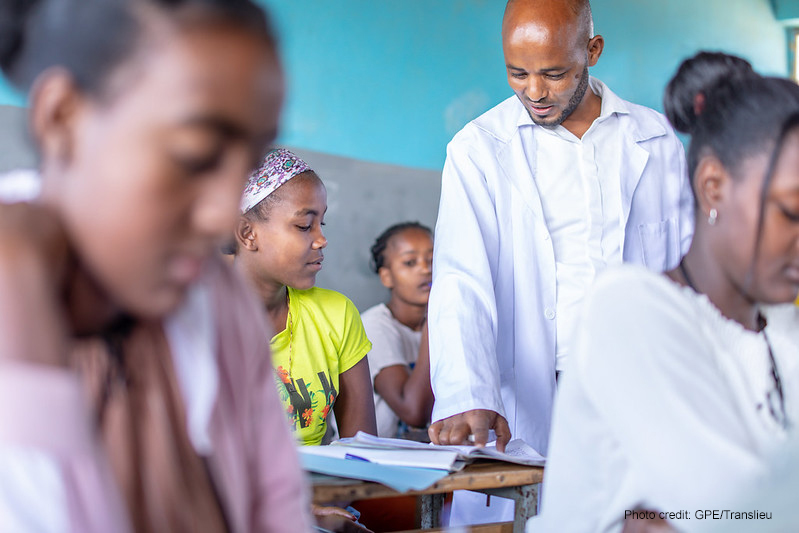
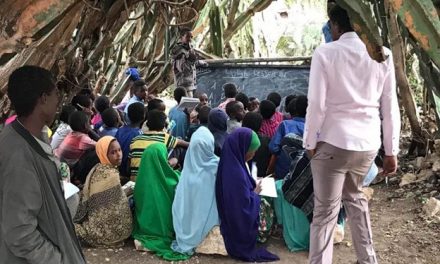
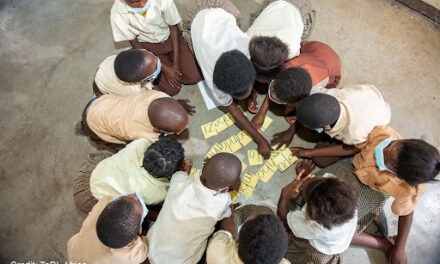

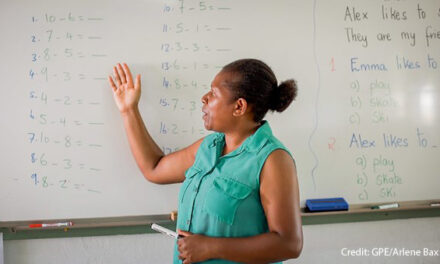
It is insightful indeed.